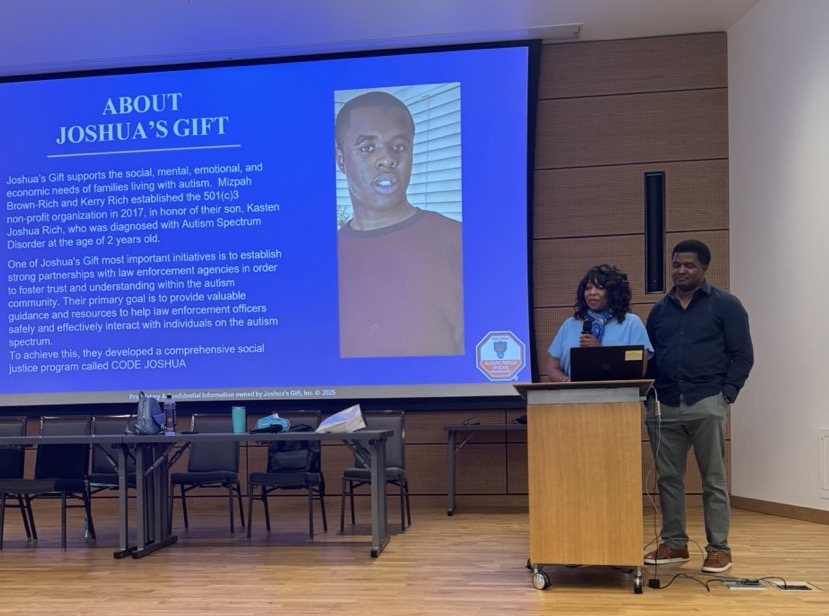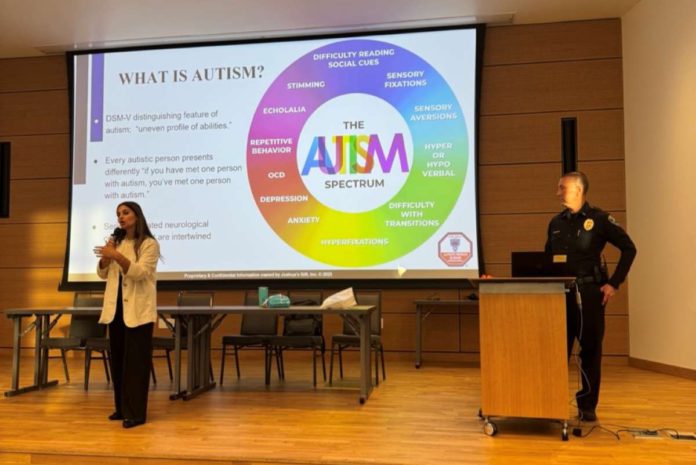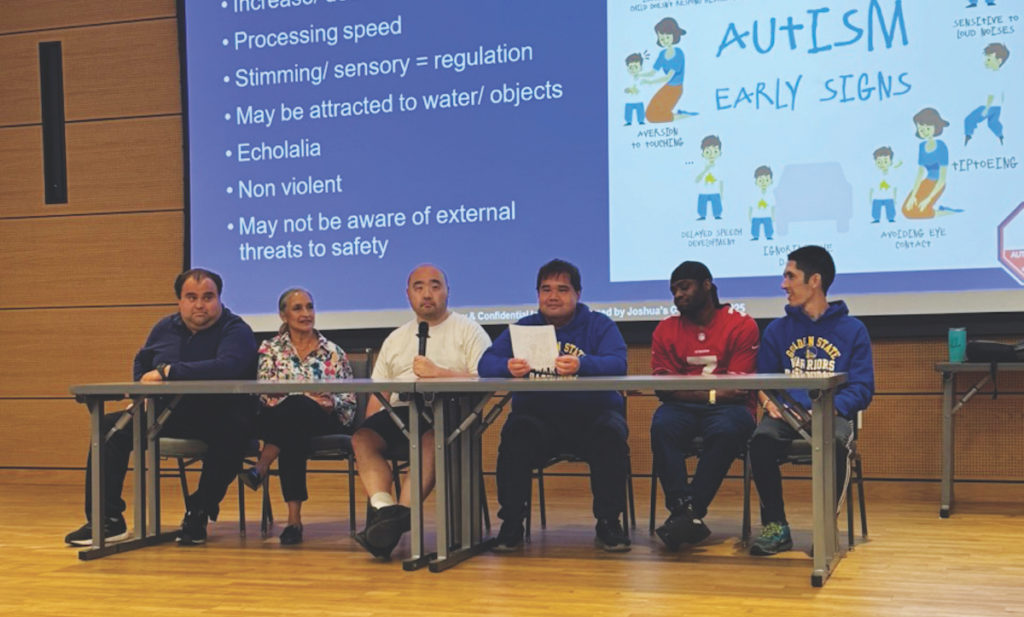Not everyone knows about autism and what autism looks like. Some people may not know how to approach an autistic person. That was the gist of the “Community Discussion on Autism” event held at the Fremont Downtown Event Center on Friday evening, Aug. 29. It was hosted by Fremont nonprofit Joshua’s Gift and the Fremont Police Department (FPD).
More than 40 people attended the community town hall. Representatives from the Newark and Milpitas Police Departments also attended to learn more about CODE JOSHUA, an emergency alert and registry system launched in April of this year by nonprofit Joshua’s Gift and the FPD.
The purpose of the database is for police to respond to 911 calls regarding autistic individuals with compassion and understanding. The FPD said about 200 people with IDDs, or Intellectual Development Disabilities like autism, have been registered in Fremont.
Joshua’s Gift co-founder Mizpah Rich invited a panel of autistic adults to the stage to talk about their experiences with police officers and their emotional triggers
Joshua’s Gift co-founder Mizpah Rich invited a panel of autistic adults to the stage to talk about their experiences with police officers and their emotional triggers. Several autistic people from the panel said loud noises make them anxious. One autistic man said he gets hot easily and he sweats a lot. Another said he has “anxiety all around.” Another man appeared very shy but was able to say, “I’m not good at giving information,” when asked if he’s able to give his personal information, such as his address, to a police officer.

Joshua’s Gift co-founders Mizpah and Kerry Rich talk about their nonprofit organization. Roelle Balan 
A panel of autistic adults share their experiences with police and their emotional triggers. Roelle Balan
Their needs are a priority when police officers and other first responders take Autistic Awareness training sessions. Audience members were able to experience what the training looks like thanks to Joshua’s Gift behavior analyst trainer, Jagmeet Sangha. She asked the audience “what-if” they saw an autistic individual looking distressed at a park. Sangha described the autistic man as a Hispanic man in his 20s speaking loudly and appearing to be lost.
In the scenario, community members describe him as “disoriented” or “possibly high.” One audience member said you should approach the person cautiously and slowly.
Sangha also asked how police officers would respond to the same situation. FPD Lieutenant Calvin Tang talked about what a new officer would have thought about the situation. “I am face-to-face with this person, but they’re not listening to my commands, they’re not listening to my instructions. What do I do next?” Tang said. “And I think this is where some of the confusion comes from.” Tang gave multiple examples of how to safely approach autistic people during a 911 call, including turning down their radios or communicating more slowly.
Sangha brought up a crucial moment that happens when there is aggressive behavior involving an autistic person and the police. “When you’re in that crisis mode, as a family member, you’re not going to remember to say, ‘Hey this is also what’s going on and these are the triggers, please enter in this way.’ So, having all of these together, as a partnership, between law enforcement, between the family, everyone kind of being on the same page, that’s what these trainings are allowing us to do.”
For more information on CODE JOSHUA, visit joshuasgift.org.





